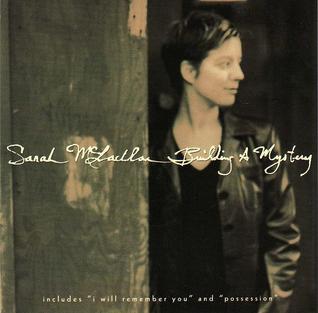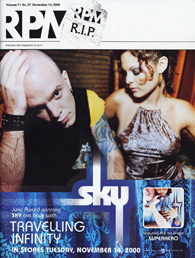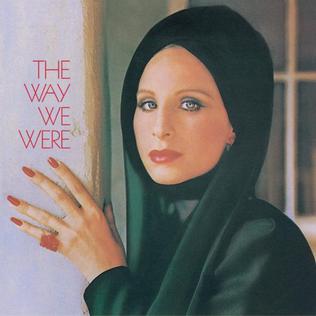Related Research Articles
The Juno Awards, more popularly known as the JUNOS, are awards presented annually to Canadian musical artists and bands to acknowledge their artistic and technical achievements in all aspects of music. New members of the Canadian Music Hall of Fame are also inducted as part of the awards ceremonies. The Juno Awards are often referred to as the Canadian equivalent of the Brit Awards in Great Britain or the Grammy Awards given in the United States.

"Unchained Melody" is a 1955 song with music by Alex North and lyrics by Hy Zaret. North wrote the music as a theme for the prison film Unchained (1955), hence the song title. Todd Duncan sang the vocals for the film soundtrack. It has since become a standard and one of the most recorded songs of the 20th century, most notably by the Righteous Brothers in 1965. According to the song's publishing administrator, over 1,500 recordings of "Unchained Melody" have been made by more than 670 artists, in multiple languages.

Moist is a Canadian rock band that formed in 1992. It consists of David Usher as lead vocalist, Mark Makoway on lead guitars, Jonathan Gallivan on guitars, Kevin Young on keyboards, Francis Fillion on drums, and Jeff Pearce on bass. Drummer Paul Wilcox left the band just before its hiatus in 2000.

"Building a Mystery" is a song by Canadian singer-songwriter Sarah McLachlan from her fourth studio album, Surfacing (1997). At a live performance, Sarah explains the song as being "basically about the fact that we all... have insecurities to hide, and we often do that by putting on a facade." She also goes on to say that "unfortunately, if we just be who we are, that's usually the more attractive and beautiful thing".

Seals and Crofts was an American soft rock duo made up of James Eugene Seals and Darrell George "Dash" Crofts They are best known for their hits "Summer Breeze" (1972), "Diamond Girl" (1973), and "Get Closer" (1976), each of which peaked at No. 6 on the Billboard Hot 100 chart. Both members have long been public advocates of the Baháʼí Faith. Though the duo disbanded in 1980, they reunited briefly in 1991–1992, and again in 2004, when they released their final album, Traces.

Unison is the ninth studio album by Canadian singer Celine Dion and her first English-language album. Released on 2 April 1990 by Columbia Records, it features a mix of dance songs and ballads influenced by 1980s soft rock. The album was produced by David Foster, Christopher Neil, Andy Goldmark and Tom Keane. Upon its release, Unison received generally positive reviews from music critics, who complimented Dion's voice and technique, as well as the album's content.

"The Way We Were" is a song by American singer Barbra Streisand from her fifteenth studio album of the same name. It was released as the album's lead single on September 27, 1973 through Columbia Records. The 7" single was distributed in two different formats, with the standard edition featuring B-side track "What Are You Doing the Rest of Your Life?"; the Mexico release instead included an instrumental B-side. The song was written by Alan Bergman, Marilyn Bergman, and Marvin Hamlisch, while production was solely handled by Marty Paich. "The Way We Were" was specifically produced for the record, in addition to three other tracks, including her then-upcoming single "All in Love Is Fair" (1974).

RPM was a Canadian music-industry publication that featured song and album charts for Canada. The publication was founded by Walt Grealis in February 1964, supported through its existence by record label owner Stan Klees. RPM ceased publication in November 2000.

"Love Can Move Mountains" is a song by Canadian singer Celine Dion, recorded for her second English-language studio album, Celine Dion (1992). Written by Diane Warren and produced by Ric Wake, it was released as the fourth single in October 1992. It is an up-tempo pop song drawing influence from gospel and dance music, and its lyrics detail the abilities that love has as an emotion. "Love Can Move Mountains" was later included on Dion's greatest hits albums, All the Way... A Decade of Song in 1999 and My Love: Ultimate Essential Collection in 2008.

John Kirkland Reid is a Scottish-Canadian country music artist. Reid moved to Canada in July 1988 when he was 13. His father, a diesel mechanic, wanted to give Reid and his brother opportunities he did not think they would have in Scotland. He graduated from Turner Fenton Secondary School in Brampton, Ontario, in 1992. Reid went on to attend Bishop's University in Lennoxville, Quebec, where he met his wife.

"Love Is in the Air" is a 1977 disco song by Australian singer John Paul Young. It was written by George Young and Harry Vanda, and released as the lead single from Young's fourth studio album, Love Is in the Air (1978). The song became a worldwide hit in 1978, peaking at No. 3 on the Australian charts and No. 5 in the UK Singles Chart. In the United States, it peaked at No. 7 on the pop chart and spent two weeks at No. 1 on the Adult Contemporary chart, his only US top 40 hit. The song plays at 122 beats per minute, a typical 1970s disco rhythm. At the Australian 1978 King of Pop Awards, the song won Most Popular Australian Single. In 1992, a remix of the song was released and featured on the soundtrack to the Golden Globe-nominated film Strictly Ballroom. A new music video was also produced.

The Way We Were is the fifteenth studio album recorded by American singer Barbra Streisand. Following the commercial success of its lead single "The Way We Were", the album was released in January 1974. Three additional songs were newly recorded for the album, while six of the tracks salvaged material from previously unreleased Streisand projects. Following distribution of a soundtrack album for the 1973 film of the same name, Columbia added a caption to Streisand's LP in order to minimize confusion between the two albums.
Alabama was a Canadian band of the early 1970s. Band members were Buster Fykes, Hector McLean, Rick Knight, and Len Sembaluk. The band performed a mix of Progressive Rock, cajun, country and soul music, including songs written by Fykes and Knight.
Gary Lynn Fjellgaard is a Canadian country music singer-songwriter.
Anita Perras is a Canadian country music singer.
"Try" is a song written by Greg Keelor and Jim Cuddy, and recorded by Canadian country rock group Blue Rodeo. Released in October 1987, it was the second single from their debut album, Outskirts. The song peaked at number 1 on the RPM Country Tracks chart, number 3 on the Adult Contemporary chart and number 6 on the Top Singles chart. At the 1989 Juno Awards, "Try" was named Single of the Year and Video of the Year.
Marie Diane Bottrell is a Canadian country music singer and songwriter. Bottrell released many singles which appeared on Canadian country music charts, and has received multiple Country Female Vocalist of the Year nominations.

"He Would Be Sixteen" is a song written by Jill Colucci, Charlie Black and Austin Roberts, and recorded by Canadian country music artist Michelle Wright. It was released in October 1992 as the third single from her third studio album, Now and Then. It peaked at number 3 on the RPM Country Tracks chart in January 1993.
Martin Stevens is the stage name of Roger Prud'homme, a Canadian pop singer prominent in the disco era. He is most noted as a two-time Juno Award nominee for Best Selling Single, receiving nominations at the Juno Awards of 1979 for "Love Is in the Air" and at the Juno Awards of 1980 for "Midnight Music".
Jim and Don Haggart were a Canadian country music duo from Nova Scotia, active in the 1970s. They were Juno Award nominees for Country Single of the Year at the Juno Awards of 1974 for their song "He", and for Best Country Group or Duo at the Juno Awards of 1975.
References
- 1 2 "RPM Country Tracks for June 2, 1973". RPM . Retrieved 3 October 2010.
- ↑ "RPM Top 50 AC - July 1, 1978" (PDF).
- ↑ "Juno Award nominations". Ottawa Journal , March 22, 1974.
- ↑ Whitburn, Joel (2005). Hot Country Songs 1944 to 2005. Record Research, Inc. p. 162. ISBN 0-89820-165-9.
- ↑ "RPM Adult Contemporary for June 9, 1973". RPM . Retrieved 3 October 2010.